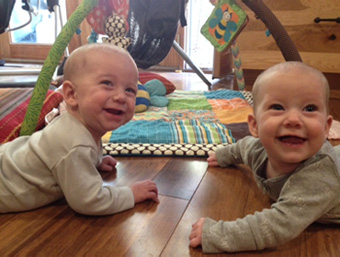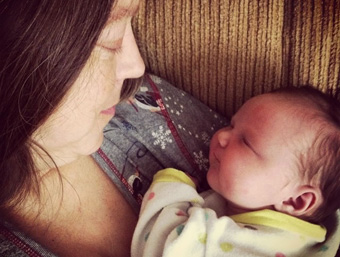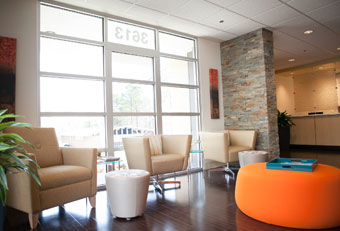By Lisa D. Hourmouzis, RN
Tubal Reversal Nurse
It’s 7:30 am at Chapel Hill Surgical Center. In a moment of solitude, Dr. Gary Berger meticulously scrubs for the first surgery of the day. As he stands there quietly, I can’t help to wonder about the story behind the man in the surgical mask.
How did he become the surgeon he is today? What drives him to succeed?
These questions led to the following sit down with America’s leading tubal reversal surgeon, Dr. Gary Berger:
When did you decide to go into obstetrics and gynecology?
GB – When I was beginning my fourth year of medical school, during the time when we had to decide what direction we were going to go in, I felt like I wasn’t really secure enough in my basic medical foundation to want to jump into a specialty. So, I made the decision I would take a year of internship in internal medicine. But I had already made the decision that year to start my OB/GYN residency after the internship in medicine.
What led you to Duke?
GB – I was always a very hard worker. I guess I believed in the adage, “No pain, no gain.” So, I picked the hardest program in the US which was the medical internship at Duke University Medical Center. They had that reputation at the time. You were on-call five nights out of seven, and it was a very grueling program. But I thought I needed that to feel like I had a basic medical education before I proceeded.
Did anyone influence your decision to enter OB/GYN?
GB – I had been thinking about going into obstetrics and gynecology, and it just so happened that during that time we had a visit from Dr. Carl Tyler from the Centers for Disease Control. He was looking to recruit physicians into the EIS program, the Epidemic Intelligence Service. He came to the University of Rochester where I attended medical school and made contact with one of the pediatric professors there. I remember being on my pediatric rotation at that time.
Unbeknown to me, my pediatrics professor had been an EIS officer; he also taught the courses in epidemiology and statistics, which I loved. Most of the other medical students weren’t so interested in them. Because I had done so well in those courses, he recommended that Dr. Tyler interview me. That was definitely a turning point in my life.
I was offered the opportunity to be in the U.S. Public Health Service at the CDC, but Dr. Tyler needed me to complete one year of my OB/GYN residency before I could join the program. That made my decision. I immediately started looking for residencies in OB/GYN. And as it turned out, that two-year period was probably one of the most influential periods in my life. It was an absolute amazing experience.
What did you like most about obstetrics and gynecology?
GB – The thing I liked about obstetrics and gynecology was the obstetrics. I really did not think I would ever have an interest in performing surgery. In medical school, my surgical rotation was one of my least favorites.
What changed your view about surgery?
GB – During my third and fourth year of my OB/GYN residency, I had the good fortune of working closely with Dr. Jerry Hulka, the inventor of the Hulka clip. He made a big impression on me. His interests, aside from developing this technique in sterilization, were laparoscopic surgery and tubal surgery. So, it was during that time I became interested in tubal surgery; and what really solidified it was when I had the chance to see microsurgery performed. I knew at that point, that’s what I wanted to do.
Why did you decide to focus on tubal reversal surgery?
GB – My ideal was always to be able to do this surgery. I’ve done infertility treatment, IVF. I’ve done almost every type of GYN operation there is, with the exception of cancer surgery, but tubal microsurgery was always my special love. Fortunately, that’s where I am at this point.
What drives you?
GB – I think it’s a desire to be successful at whatever I do. If I’m doing tubal surgery, I want to be the best at doing tubal surgery. I want to know the most about it, have done the most and not just have the most experience, but intellectually, collected the most information. To me, that’s enjoyable because then I feel like it’s something that I’ve mastered. And of course, I like being able to help the couples that come here. I really feel that we can help most people. I know that people are better off coming here than taking any other alternative that they have, in terms of having tubal reversal surgery.
What do you enjoy most about tubal reversal surgery?
GB – I like the challenge, the meticulousness about it. And I like being able to operate on patients and see them be comfortable and safe, and not dealing with complications.
I have a very idealistic view of things. If there’s a better way to do something, let’s find it and do it that way. I just think that’s a good way to practice medicine. But it’s not just about me personally; it has to do with everyone on our staff who is involved in it.
Where do you hope to see tubal reversal surgery in the future?
GB – I don’t know if the pendulum will ever swing back to tubal reversal, it was there when I started 30 years ago. It was the new, exciting thing. And then IVF became the new and exciting thing.
Tubal surgery is quite different. I don’t think tubal surgery will ever suddenly become widely used or widely taught, but I think there is clearly a place for it. I like the fact that I’m training another doctor. And maybe in the future, one thing we might consider is becoming a training center where we could take physicians who are already at an advanced level like Dr. Monteith, and help them be able to do this type of surgery with expertise.
Tubal reversal helps a lot of patients, and there definitely should be the option for doctors to have additional education in it so that doctors don’t automatically send their patients into IVF programs when a simple tubal operation could be the solution.
Do you have a philosophy in your professional life?
GB – There’s an expression that I heard when I was in medical school, the quote was, “the secret in caring for the patient is in caring for the patient.” And part of my philosophy is that I want to provide the exact type of medical care that I would want for myself, no less.
If I have to go a doctor, I want somebody who knows what they’re doing, is educated and a decent and kind person. Technically an expert, as knowledgeable about it as anyone, or more so than anybody else in the world. That’s the kind of doctor I would want for myself. Someone who will really take care of me if I have a problem and won’t brush it off or be too busy because it’s inconvenient. That’s the same thing that I want to provide for all of my patients.
To learn more about Dr. Berger and A Personal Choice, call (919) 968-4656 for a free tubal reversal consultation.









